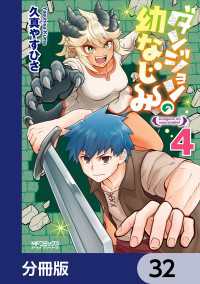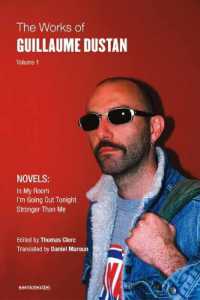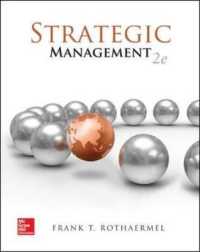基本説明
Offers an overview of the current state of Inuit studies by bringing together the insights and fieldwork of more than a dozen scholars from six countries currently working with Native communities in the far north.
Full Description
Over the past decade, some of the most innovative work in anthropology and related fields has been done in the Native communities of circumpolar North America. Critical Inuit Studies offers an overview of the current state of Inuit studies by bringing together the insights and fieldwork of more than a dozen scholars from six countries currently working with Native communities in the far north. The volume showcases the latest methodologies and interpretive perspectives, presents a multitude of instructive case studies with individuals and communities, and shares the personal and professional insights from the fieldwork and thought of distinguished researchers. The wide-ranging topics in this collection include the development of a circumpolar research policy; the complex identities of Inuit in the twenty-first century; the transformative relationship between anthropologist and collaborator; the participatory method of conducting research; the interpretation of body gesture and the reproduction of culture; the use of translation in oral history, memory and the construction of a collective Inuit identity; the intricate relationship between politics, indigenous citizenship and resource development; the importance of place names, housing policies and the transition from igloos to permanent houses; and social networks in the urban setting of Montreal.
Critical Inuit Studies is essential reading for students and scholars interested in today's circumpolar North and in contemporary Native communities.
Contents
Part I: Figuring Method Flora and Me: Collaboration and Combat in the Yukon-Kuskokwim Delta of Southwest Alaska, Molly Lee; Listening to Elders, Working with Youth: Changing Dimensions of Theory and Practice in Alaskan Arctic Research in the 21st Century, Carol Zane Jolles; Participatory Anthropology in Nunavut, Michael Kral and Lori Idlout; Time, Space, and Memory in Inuvialuit Narratives, Murielle Nagy; Anthropology in an Era of Inuit Empowerment, Edmund (Ned) Searles Part II: ReConfiguring Categories: Culture The Pipeline to Citizenship: The Inuvialuit Land Claims Agreement and Economic Development and the Expectations of Indigenous Citizens, Pamela Stern; "Showing" Traditions: Cultural Productions and Cultural Survival among the Iglulingmiut, Nancy Wachowich; Culture as Narrative: Who is telling the Inuit Story?, Nelson Graburn; six gestures, peter kulchyski; The Ethical Injunction to Remember: Memory, Cultural Survival and Ethics in Nunavut, Lisa Stevenson Part III: ReConfiguring Categories: Place Inuit Place Names and Sense of Place, Beatrice Collignon; Inuit Social Networks in an Urban Setting, Nobuhiro Kishigami; Inuit Geographical Knowledge One Hundred Years Apart: Place Names in Tinijjuarvik [Cumberland Sound], Nunavut, Ludger Muller-Wille and Linna Weber Muller-Wille; Iglu to Iglurjuag: The Anthropology of Colonialism in Culture, Home and History, Frank James Tester
-

- 電子書籍
- ダンジョンの幼なじみ【分冊版】 32 …
-

- 洋書電子書籍
-
飲料の科学2:加工・持続可能性
…






